|
The Junior School
In March 1931 a special meeting was
held to discuss the possibility of opening a junior school.
The orphanage had recently been bequeathed £14, 025 and so it was
decided that a junior school should be built on part of the
Old Graiseley Hall Estate to allow children to be admitted
from the age of 5.
The building was designed by Mr. H. E.
Lavender and built by Henry Willcock & Company. It formally
opened on 25th July, 1932. In September there were 47
children under the age of 9, including 7 boys and 2 girls
who had been transferred from the senior school.
An inspection was carried out by the
Board of Education on 3rd October, 1933 and in January 1934
it was recognised as an efficient Preparatory School. In
April 1935 there were 49 boys and 22 girls in the school,
where space was now in short supply. Architects Lavender & Twentyman were asked to design an extension to provide three
extra classrooms, an additional dormitory, and cloakroom and
sanitary space. It was built by Fred Pickering.
|
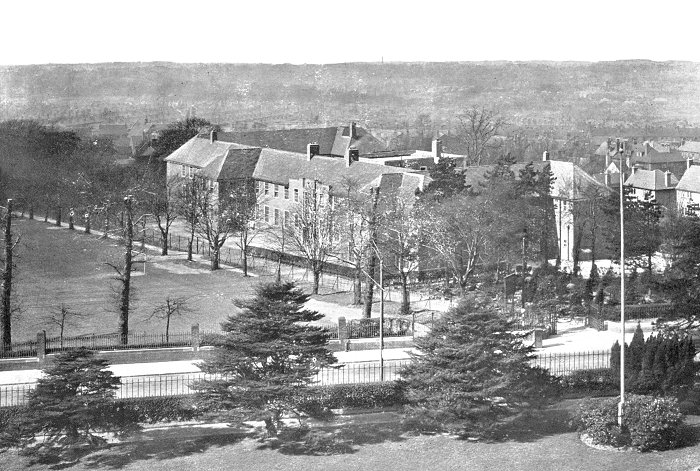
The Junior School. From
the 1942-3 Wolverhampton Red Book. |
The Royal School
At the Annual Meeting on 6th April,
1937 Mr. J. G. Allen proposed that the name of the orphanage
should be changed to reflect its status as an educational
establishment. His resolution was as follows:
| That the name 'Orphanage' as far as
the Schools are concerned be substituted
by a title which would be more in
harmony with the fact that the Schools
are included in the Board of Education's
List of Efficient Secondary Schools, and
the Board of Governors are hereby
empowered to select an appropriate
title. |
|
The idea was almost universally
accepted, but the Governors had difficulty in deciding what
it should be. Mr. Frank Gaskell suggested 'The Royal School'
which was soon universally approved. Initially it was
decided that nothing would be done until the war was over,
but at a special meeting of the Governors in 1943 everyone
felt that the name change could not wait. On 4th January,
1944 a letter was written to the Home Secretary to seek
approval for the name change. The Chairman and the House
Governor attended a meeting at the Home Office and the
following letter authorising the name change was received:
|
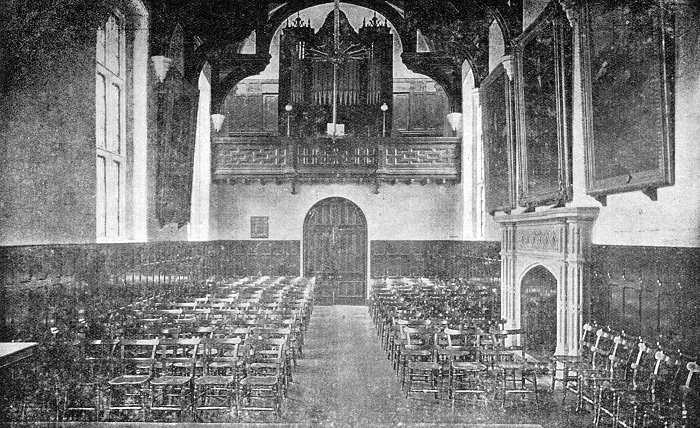
The Chapel. From the Royal
Orphanage Souvenir Book for 1924. |
|
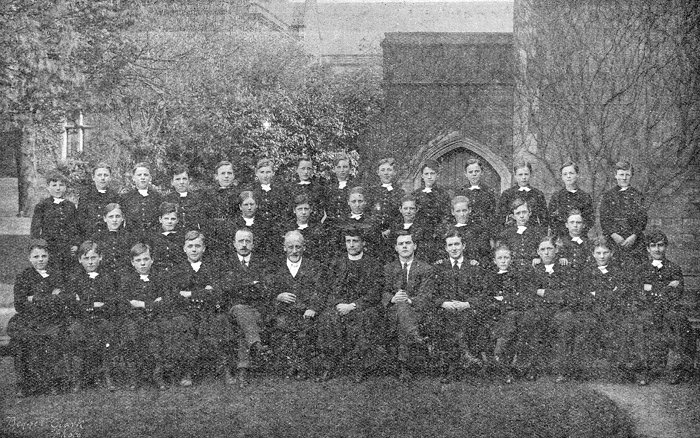
A Group of Senior Boys.
From the Royal Orphanage Souvenir Book for 1924. |
|
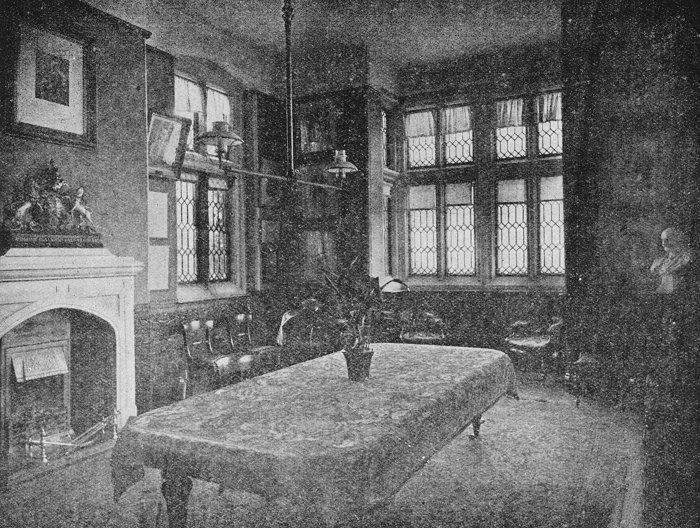
The Board Room. From the
Royal Orphanage Souvenir Book for 1924. |
|
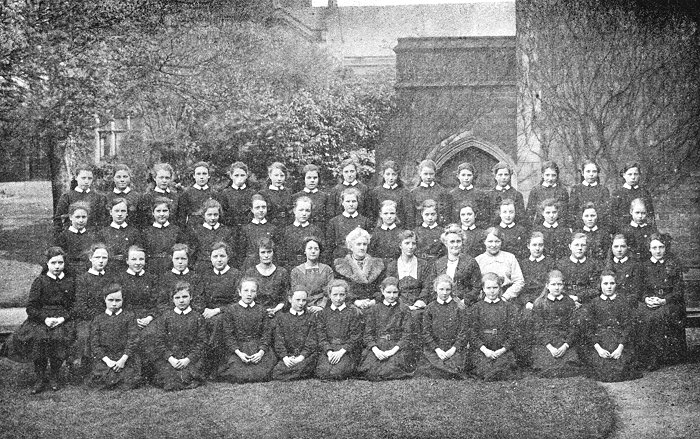
The Senior Girls. From the
Royal Orphanage Souvenir Book for 1924. |
|
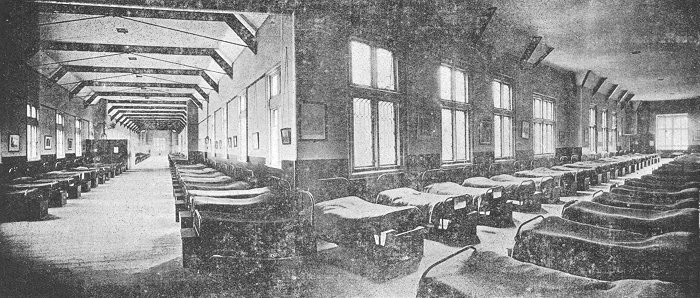
The Boys Dormitory and the
King Edward VII extension. From the Royal
Orphanage Souvenir Book for 1924. |
References:
The Royal Wolverhampton School by F. L.
Steward. Published in 1950 by Steens (Wolverhampton)
Limited.
The Royal Orphanage Wolverhampton Souvenir Year Book for
1924. Published by William Cox & Sons.
A History of Wolverhampton by Chris Upton. Published by
Phillimore & Company Limited in 1998.
Wolverhampton Red Books for 1908, 1913,
1915, 1942-3.
|